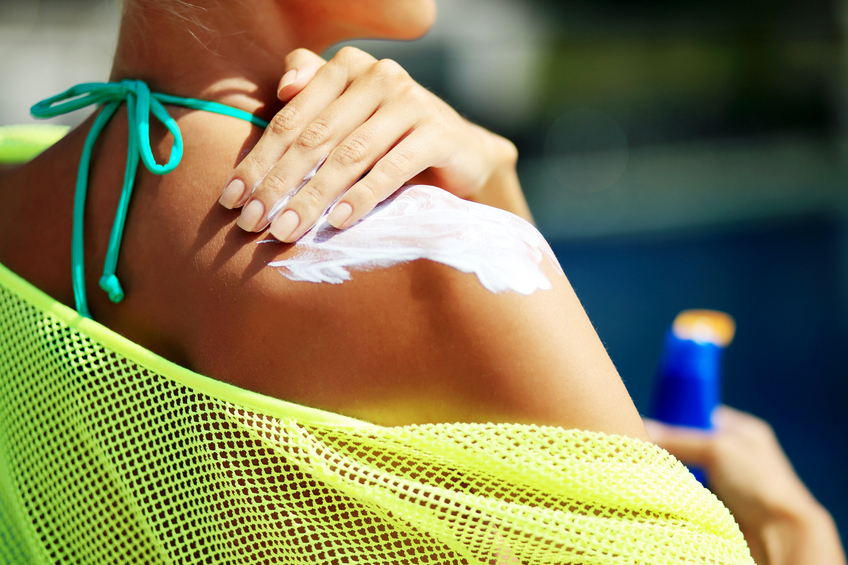Skin cancer is the most common cancer in the world. And, according to the American Cancer Society, more skin cancers are diagnosed in the United States each year than all other cancers combined.
With the skin-baring summer months upon us, we asked Dr. Holly Gunn, medical director of the Dermatology, Aesthetic and Laser Center at St. Elizabeth Physicians in Florence, for a little advice on sunscreens.
What is “broad spectrum” protection?
Broad spectrum protection means the product protects against both UVA and UVB rays, both of which damage skin, are thought to cause some skin cancers and can lead to early aging. In 2013, the Food and Drug Administration even adopted new labeling rules for sunscreens. Previously, labels only showed sun protection factor (SPF) for UVB rays, but not UVA rays. You definitely want to look for “broad spectrum” on the label so you know you are protected from the cancer-causing UVB and aging UVA rays.
What does SPF mean?
SPF measures how much UVB radiation it takes to cause a sunburn with sunscreen compared to without sunscreen. However, SPF 30 does not mean you are free for 30 hours. All sunscreens need to be reapplied at least every two hours when you are outdoors and more often if you are perspiring or swimming. Choose a sunscreen in the SPF 30 to 50 range so that you know you are blocking over 97 percent of the sun’s harmful rays.
Many cosmetics now include sunscreens. Do these provide adequate protection?
The FDA labeling rules that went into effect in 2013 require sunscreens with an SPF lower than 15 to include a warning on the label stating that the product has been shown only to help prevent sunburn, but not skin cancer or early skin aging. If your favorite skin cream or makeup includes an SPF less than 15, don’t bank on it for protection. Wear SPF 30 or higher if in direct sunlight.
What about convenience products like aerosol sprays or wipes and body washes. Are they safe and effective?
Convenience products are all the rave because they make applying sunscreen even easier. However, they may not cover the skin as well as a lotion or cream. I recommend using a sunscreen lotion prior to even leaving the house and utilize the easier sprays and wipes for reapplication. Some of the washes really do add protection, but reapplication is a bit tricky.
Does sunscreen lose its effectiveness sitting in the cabinet or the pool bag?
Yes. Sunscreens can lose their effectiveness overtime, especially the non-mineral sunscreens. It is best to obtain new sunscreen every year.
What else do we need to know before heading off to the pool?
It is fun and healthy to be active and in the sun, however, you need to remember to protect yourself. Sunscreen shouldn’t be your only line of defense against the sun. Covering up with wide-brimmed hats and protective clothing, avoiding the sun during the peak exposure hours (10 a.m. – 2 p.m.) and seeking shade can also reduce your exposure.
And watch the kids! It can be hard to corral the kids when they’re splashing around having fun, but be vigilant with reapplication and remember to use a cream sunscreen before leaving the house. Mineral sunscreen that contain zinc or titanium products are less likely to sting or burn the eyes so the kiddos typically tolerate those better.

